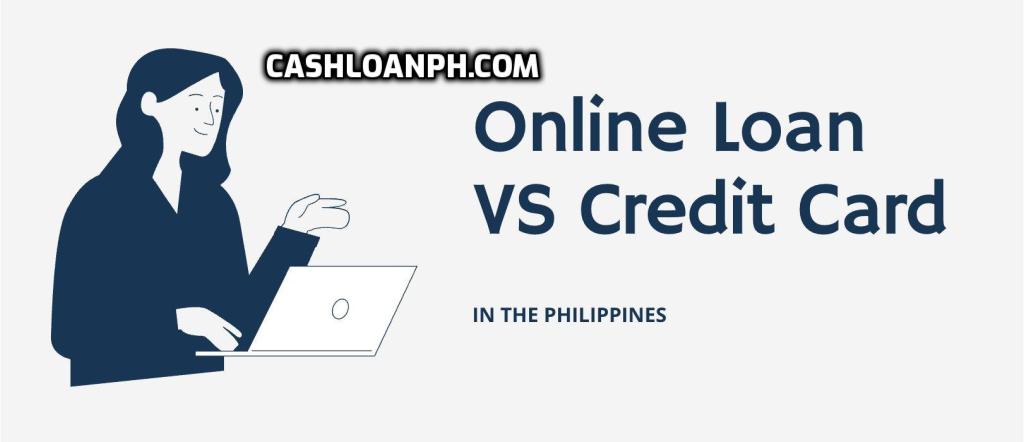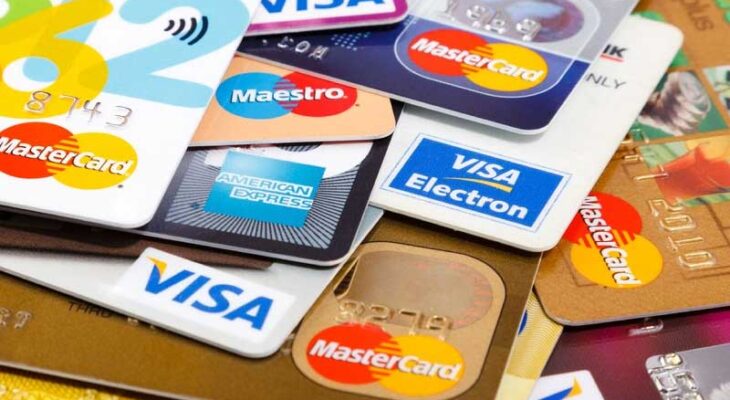As the Philippine economy continues to grow and develop, the use of credit cards has become increasingly popular among Filipinos. Credit cards offer a convenient and flexible payment option, allowing consumers to make purchases and pay for them over time. However, credit cards also come with potential risks and responsibilities that consumers should be aware of before signing up for one.
In this article, CashLoanPH will explore the benefits and risks of credit cards in the Philippines, as well as the responsibilities that come with using them.
What Is a Credit Card?
A credit card is a financial instrument typically issued by a bank or financial services company that allows its users to borrow funds to pay for goods and services at merchants that accept card payments. Credit cardholders are obligated to repay the borrowed funds, as well as any applicable interest and other charges, either in full by the billing date or over time.
Credit card issuers may offer a separate cash line of credit (LOC) to cardholders, enabling them to obtain cash advances through bank tellers, ATMs, or credit card convenience checks. However, cash advances generally carry different terms, including higher interest rates and no grace periods, compared to transactions that access the main credit line. Credit card issuers typically determine borrowing limits based on the creditworthiness of individual cardholders.
Credit cards are widely accepted by the vast majority of businesses as a popular payment method for purchasing consumer goods and services.
Types of Credit Cards in Philippines
There are several types of credit cards available in the Philippines, each with its own set of benefits and features. Here are some of the most common types of credit cards in the Philippines:
- Rewards Credit Cards: These cards allow consumers to earn rewards points for every purchase made using the card. These rewards can be redeemed for a variety of benefits, such as cashback, discounts on future purchases, free flights, or hotel stays.
- Cashback Credit Cards: These cards offer cashback rewards for every purchase made using the card. The amount of cashback can vary depending on the card, but typically ranges from 1% to 5% of the purchase amount.
- Travel Credit Cards: These cards are designed for frequent travelers and offer benefits such as free airport lounge access, travel insurance, and rewards points that can be redeemed for free flights or hotel stays.
- Balance Transfer Credit Cards: These cards allow consumers to transfer high-interest balances from other credit cards to a lower interest rate card, typically with a 0% introductory rate for a set period of time.
- Low Interest Rate Credit Cards: These cards offer a lower interest rate than other credit cards, making them a good option for consumers who carry a balance on their card.
- Secured Credit Cards: These cards require a security deposit to be made by the cardholder, which serves as collateral for the credit limit. Secured credit cards are a good option for consumers with no or poor credit history.
It’s important to choose the right type of credit card that suits your spending habits and financial goals. Before applying for a credit card, it’s recommended to compare the features, fees, and rewards of different cards to find the best one for your needs.
Benefits of Credit Cards in Philippines
Credit cards offer a variety of benefits that make them a popular payment option among Filipinos. One of the most significant benefits of credit cards is convenience. Credit cards allow consumers to make purchases without having to carry cash or visit an ATM. This can be particularly useful for large purchases or when traveling, as credit cards are accepted by most merchants worldwide.
Another benefit of credit cards is the ability to earn rewards and incentives. Many credit cards offer cashback rewards, points, or miles for every purchase made using the card. These rewards can be redeemed for a variety of benefits, such as discounts on future purchases, free flights, or hotel stays.
Credit cards also provide a form of emergency funding. In the event of an unexpected expense, such as a medical emergency or car repair, credit cards can be a useful resource for financing. Additionally, credit cards offer a form of credit that can be used to establish a credit history and improve credit scores.
Risks of Credit Cards in Philippines
While credit cards offer many benefits, they also come with potential risks that consumers should be aware of. One of the most significant risks of credit cards is the potential for debt. Credit cards allow consumers to make purchases and pay for them over time, but if the balance is not paid in full, interest and fees can quickly add up. This can lead to debt that can be difficult to pay off, especially if the cardholder continues to make purchases without a plan for repayment.
Another risk of credit cards is the potential for fraud and identity theft. Credit card information can be stolen in a variety of ways, such as through phishing scams, data breaches, or theft of physical cards. This can result in unauthorized purchases and fraudulent charges that can be difficult to dispute and resolve.
Finally, credit cards can lead to overspending and financial instability. Credit cards can be a tempting way to make purchases that may be beyond one’s means. This can lead to a cycle of debt and financial instability that can be difficult to overcome.
Responsibilities of Credit Cardholders in Philippines
Using credit cards comes with certain responsibilities that consumers should be aware of. First and foremost, credit cardholders are responsible for making timely payments on their balances. Late payments can result in fees and interest charges that can quickly add up, leading to debt and financial stress.
Additionally, credit cardholders should be aware of the terms and conditions of their credit card agreements. This includes the interest rates, fees, and other charges associated with the card, as well as the due dates for payments and the credit limit.
Finally, credit cardholders should monitor their credit card activity regularly to ensure that there are no unauthorized charges or fraudulent activity. This can be done by checking monthly statements, monitoring online account activity, and reporting any suspicious activity to the credit card issuer immediately.
Borrowing Money Online Using Credit Cards in the Philippines
In the Philippines, credit cards are a common method of borrowing money, offering a range of benefits including convenience, security, and rewards programs. However, when it comes to borrowing money online using credit cards or through an online loan provider, it’s important to understand the associated risks and costs.

Online loans using credit cards in the Philippines offer a convenient and secure way to borrow money from the comfort of your own home. Online loan providers offer personal loans that can be applied for and processed entirely online, allowing you to receive the funds directly in your bank account within just a few days.
When considering borrowing money online using a credit card in the Philippines, it’s important to be aware of the fees and interest rates associated with online loans. While online loans may have lower interest rates and fees compared to cash advances, it’s important to shop around and compare offers from different lenders to ensure you’re getting the best deal.
To apply for an online loan using a best credit card in the Philippines, you’ll need to have a valid credit card and an active bank account. You’ll also need to provide some basic personal and financial information, as well as proof of income and identity verification. Once you’ve been approved for a loan, the funds will typically be deposited into your bank account within a few days.
It’s important to remember that borrowing money using a credit card comes with risks, and it’s essential to exercise caution and practice responsible borrowing habits. This includes only borrowing what you can afford to repay, making payments on time, and avoiding borrowing from multiple lenders at once.
5 Best Credit Card Providers in the Philippines
There are many banks and financial institutions in the Philippines that offer credit cards. Here are some of the top providers:
- BDO: Banco de Oro (BDO) is one of the largest banks in the Philippines and offers a range of credit cards, including rewards, cashback, and travel cards. BDO also offers exclusive benefits to its cardholders, such as discounts on shopping, dining, and travel.
- Metrobank: Metrobank is another major bank in the Philippines that offers a range of credit cards, including rewards, cashback, and travel cards. Metrobank’s credit cards also come with exclusive benefits, such as discounts on shopping, dining, and travel, as well as access to airport lounges.
- Citibank: Citibank is a global bank that offers a range of credit cards in the Philippines, including rewards, cashback, and travel cards. Citibank’s credit cards come with a range of benefits, such as access to airport lounges, travel insurance, and concierge services.
- HSBC: HSBC is another global bank that offers credit cards in the Philippines, including rewards, cashback, and travel cards. HSBC’s credit cards also come with exclusive benefits, such as discounts on shopping, dining, and travel, as well as access to airport lounges.
- Standard Chartered: Standard Chartered is a global bank that offers credit cards in the Philippines, including rewards, cashback, and travel cards. Standard Chartered’s credit cards come with a range of benefits, such as discounts on shopping, dining, and travel, as well as access to airport lounges and concierge services.
When choosing a credit card provider, it’s important to consider factors such as fees, interest rates, rewards, and benefits. It’s also important to compare the features and benefits of different credit cards to find the best one for your needs.
Conclusion
Credit cards can be a convenient and flexible payment option for consumers in the Philippines. However, they also come with potential risks and responsibilities that consumers should be aware of before signing up for one. By understanding the benefits and risks of credit cards and taking responsibility for their use, consumers can make informed decisions about their financial well-being.



